Speakers
Storytelling has historically been a means of communicating between generations what could not be written or read but was valuable to not be lost/forgotten. It was to spread the word, good or bad, of what happened. Oral preservation and presentation of lived experiences can be as powerful as that which is written.
In the “Real Talk” series Storytelling is a conversational way of sharing personal experiences in a real and meaningful way by community members who are or have lived the experiences of the challenges, changes, and maybe even a few blessings of caregiving for a person with Dementia/Alzheimer’s. Spouses, children, siblings, other family members and friends of all generations volunteered to tell their stories and consented to have them shared with others during the Series in an open sometimes raw “real talk” manner. The intent is to encourage and support the listener – “you are not alone”. In this series, Storytelling and Expert Presentations are intertwined to provide a rich sharing and learning experience for the session participants.
The planners/organizers of “Real Talk” thank and appreciate the volunteer storytellers for the courage and encouragement to tell their story in the hope that it may help others.
Note: If you wish to share your story, please contact Ernie Urquhart at Ernest.Urquhart@fibco.org

“Essentials of Planning” – in Caregiver Role
Adrienne Thompson is a content expert on the subject of Caregiving Across the Lifespan. She coaches and consults caregivers across the country. Adrienne’s specialty in care planning for families was born out of her personal family experiences and as Chief Executive Officer for the family-owned franchise, Thompson Home Helpers of Los Angeles, California. She has served as a guest lecturer on the subject of Caregiving, at the Charles R. Drew University of Medicine and Science.
Adrienne has a passion for enlightening her listeners on the importance of health equity in caregiving for underserved populations. She has presented workshops locally and nationally for Alpha Kappa Alpha Sorority Incorporated, Top Ladies of Distinction, Incorporated and Kappa Alpha Psi Fraternity, Incorporated to name a few. She is a member of the Board of Directors for the Stovall Foundation of Los Angeles, California and also serves on the Board of Directors for the Ivy Centennial Foundation of Culver City, California.
Ms. Thompson began her undergraduate studies at Howard University, which is located in her hometown of Washington D.C. She earned her Bachelor’s Degree in Psychology and a Master’s Degree in Counseling and Student Services at Kansas State University.

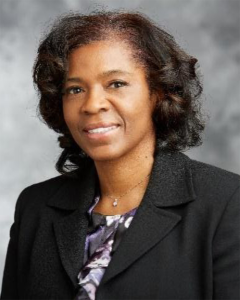
Understanding Behaviors in Dementia
Dr. Angela M. Allen has a Doctor of Philosophy (PhD) from Arizona State University College of Nursing and Healthcare Innovation, a Master of Education/Educational Specialists (EdS), a Master of Arts in Teaching (MAT) and a Bachelor of Science in Nursing (BSN).
Dr. Allen has been employed with Banner Health and Arizona State University for over 14 years. She currently serves in numerous capacities, including Banner Health co-investigator and as a research mentor for several studies such as the Dementia Clinical Initiative, Dementia Care Partners, Dementia Awareness in a Hospital Setting, Steps to Hope, and Family and Community Services – Focus Groups.
Dr. Allen’s most recent work has been addressing cultural diversity in the clinical setting and engaging the African American community in research.
“I love the opportunities Banner Health/Research provides. It allows me to interact and collaborate with clinical and community settings in a creative and systematic way.”
“Perhaps one of the accomplishments I am most proud of are achieving a terminal degree and applying it to the work I’ve done in the African American Community through my research in Alzheimer’s disease and related dementias.”
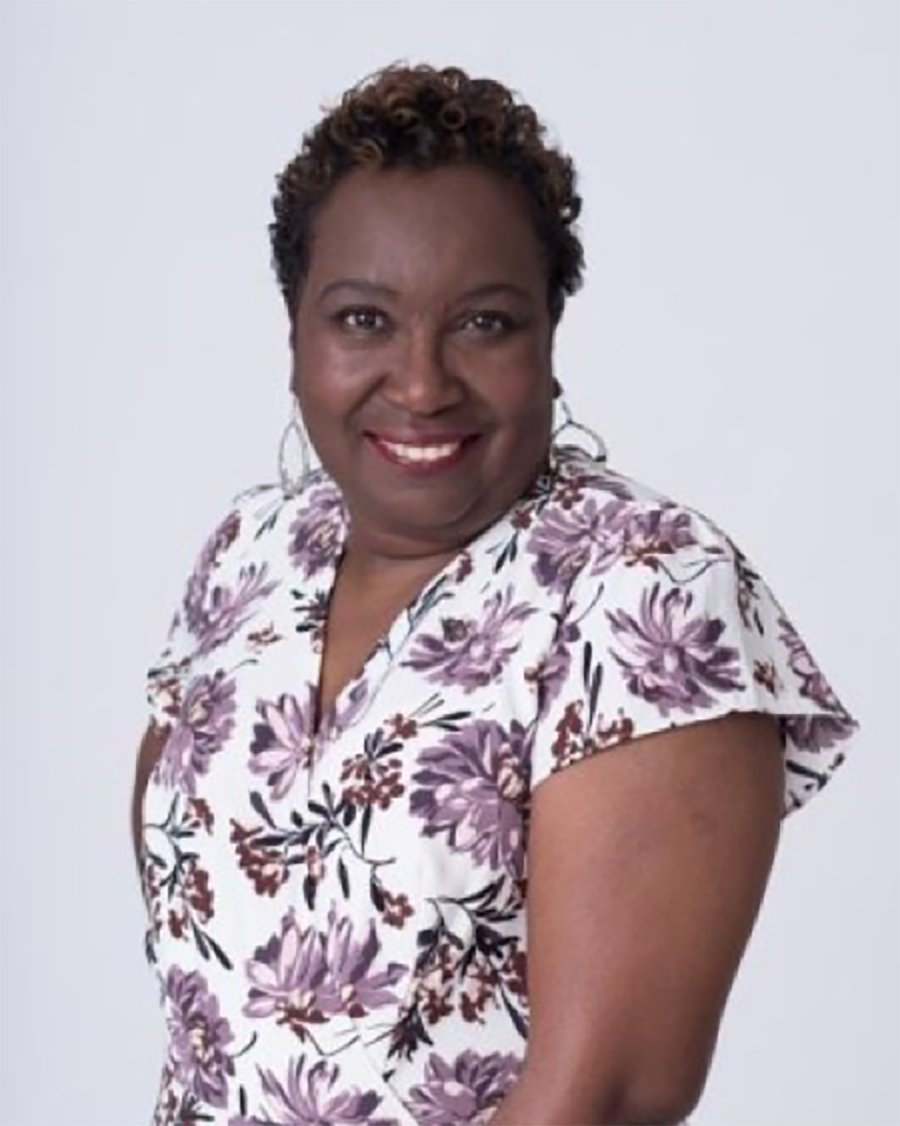
Stories of Lived Experiences
Arthena Caston was diagnosed with mild cognitive impairment (MCI) in 2016 at age 51.
Arthena worked in customer support for a large insurance company when she began noticing lapses in her memory. As a natural “people person,” Arthena enjoyed her daily interactions with customers, but she was soon forgetting to return their calls unless she wrote herself detailed notes.
At home, Arthena found favorite pursuits, including reading, cooking, and routine trips to Hobby Lobby were becoming more challenging. Even routine tasks such as putting on makeup before work became difficult. The most alarming moment, however, came the day she left her car running for an entire day in her employer’s parking lot, only realizing her mistake when she returned to go home later that night
“Prompted by her worsening memory lapses, Arthena and her husband, Virous, shared their concerns with her primary care physician. She was referred to a neurologist for brain imaging and then referred to a neuropsychiatrist, who performed additional cognitive testing. Two days after first sharing her concerns with her doctor, Arthena had her diagnosis – MCI. Arthena remembers “feeling numb” when she finally received her diagnosis. She still recalls the progression of Alzheimer’s disease in her father – “a strong military man who became a shell of his former self.””
“Shortly after receiving her diagnosis, Arthena called the Alzheimer’s Association 24/7 Helpline. She was connected with her local chapter, where she received an in-person care consultation as well as help in arranging a care consultation for her family independent of her.”
It was important to me for my family to have a safe place to openly share their feelings,” Arthena says. “I want my family to understand what the future holds and to be open with their feelings as my symptoms and behaviors change.”
Married for 29 years, Arthena confides that her husband initially struggled to come to terms with diagnosis, but has become her greatest supporter. “My husband is my rock and more proud of me than anyone I know,” she says.
Today, Arthena has a renewed sense of purpose and passion for sharing what life is like living with dementia. Known in her neighborhood as the “Purple Dog Lady,” Arthena walks her dogs daily typically donning purple Alzheimer’s Association t-shirts and sweaters. She even combined her love of designing items with her passion for advocacy, creating her own Alzheimer’s t-shirt to sell and raise funds for the fight against the disease. Arthena works closely with her local Alzheimer’s Association chapter, volunteering her time toward increasing concern awareness and fundraising.
In 2020, Arthena was elected to the Alzheimer’s Association Board of Directors. She is one of two individuals living with dementia to serve on the 29-member, all-volunteer governing board. In her role, Arthena helps steer the strategic direction of the Association as it carries out its mission to lead the way to end Alzheimer’s and all other dementia by accelerating global research, driving risk reduction and early detection, and maximizing quality care and support.
“I am honored to serve on the Alzheimer’s Association Board of Directors and to have an opportunity to give all those living with dementia a voice,” Arthena said. “So many people think people living with Alzheimer’s and other dementia have nothing to contribute, but I am living proof that we have do. I want to use my voice to help inform the Association’s programs and initiatives so they are responsive to the needs of individuals and families affected by this devastating disease.”
Prior to her appointment on the Board, Arthena served on the Association’s National Early Stage Advisory Group, which helps raise awareness of Alzheimer’s and other dementia by sharing members’ personal insights and experiences of living with dementia with media and other audiences across the country.
“It’s ok to be afraid. It’s alright to cry, scream, get mad, question the diagnosis and ask ‘why me?’” she says. “But after you have gone through the initial shock and pain, start thinking about what you can do to enjoy the time you have with family and friends. Do everything you have ever wanted to do and enjoy life.”
Arthena and her husband, Virous, live in Macon, Georgia with their two dogs. They have two adult daughters serving in the U.S. Air Force, and two grandsons who they visit often.

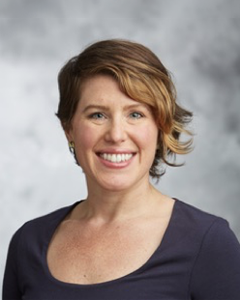
Danielle Goldfarb, MD is a memory specialist and double board-certified neurologist and psychiatrist at the Banner Sun Health Research Institute in Sun City, AZ. She received her medical degree from the University of Arizona and completed residency and fellowship at Brown University. She supports patients and families living with memory loss and dementia through clinical care and research along with leading educational and outreach efforts.
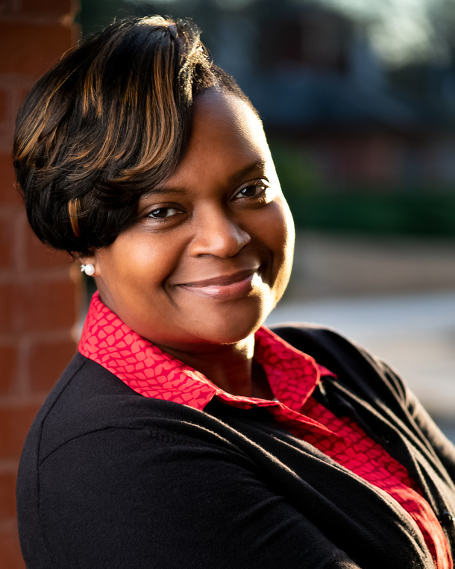
Cultural Realities of Dementia Caregiving
Fayron Epps, PhD, RN, is a nurse with over 20 years of experience and is currently serving as an assistant professor at Emory University, Nell Hodgson Woodruff School of Nursing. Dr. Epps serves as the principal investigator for the Faith Village Research Lab and is the founder of the Alter Program. Her career goal as a nurse scholar is to promote quality of life for families affected by dementia through research, education, and service. Her program of research involves evidence-based practices for promoting quality of life for African Americans with dementia and their family caregivers/care partners. She is particularly interested in exploring the way religious activities and spiritual connectedness can promote meaningful engagement among persons with dementia. Dr. Epps works hard to place culturally appropriate evidenced-based programs and interventions in the hands of those individuals who need it the most.

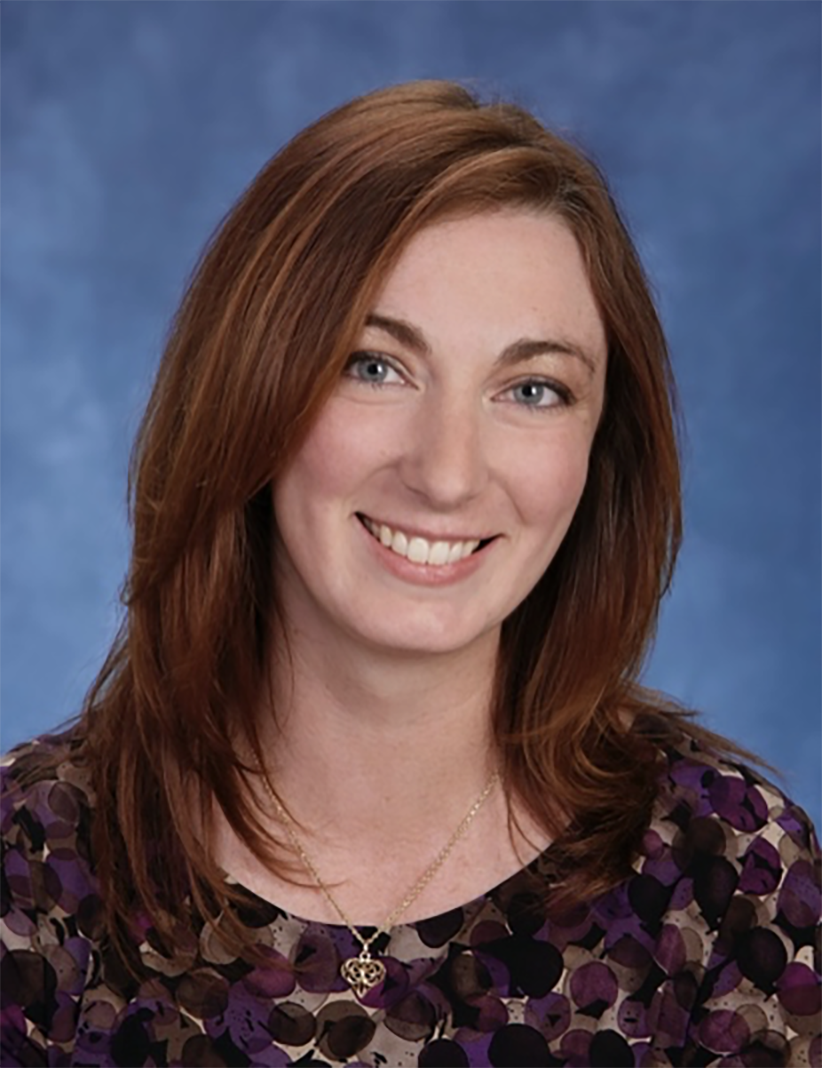
Heather Mulder is the Associate Director of Outreach Programs for Banner Alzheimer’s Institute. Working with older adults, and specifically, persons impacted by Alzheimer’s disease has been the common thread in Heather’s career, first in long term care, next with an Area Agency on Aging and finally as an educator for the Alzheimer’s Association – Illinois Chapter.
She was selected to be part of the 2016/17 cohort of Arizona’s top emerging nonprofit leaders for a year-long leadership development program through the American Express Leadership Academy. Heather is known as a connector and shares her talent with BAI helping to create accessible programming for both persons with dementia and their care partners.
Heather served on the “REAL TALK” planning Committee and as a facilitator of the shared experiences discussions
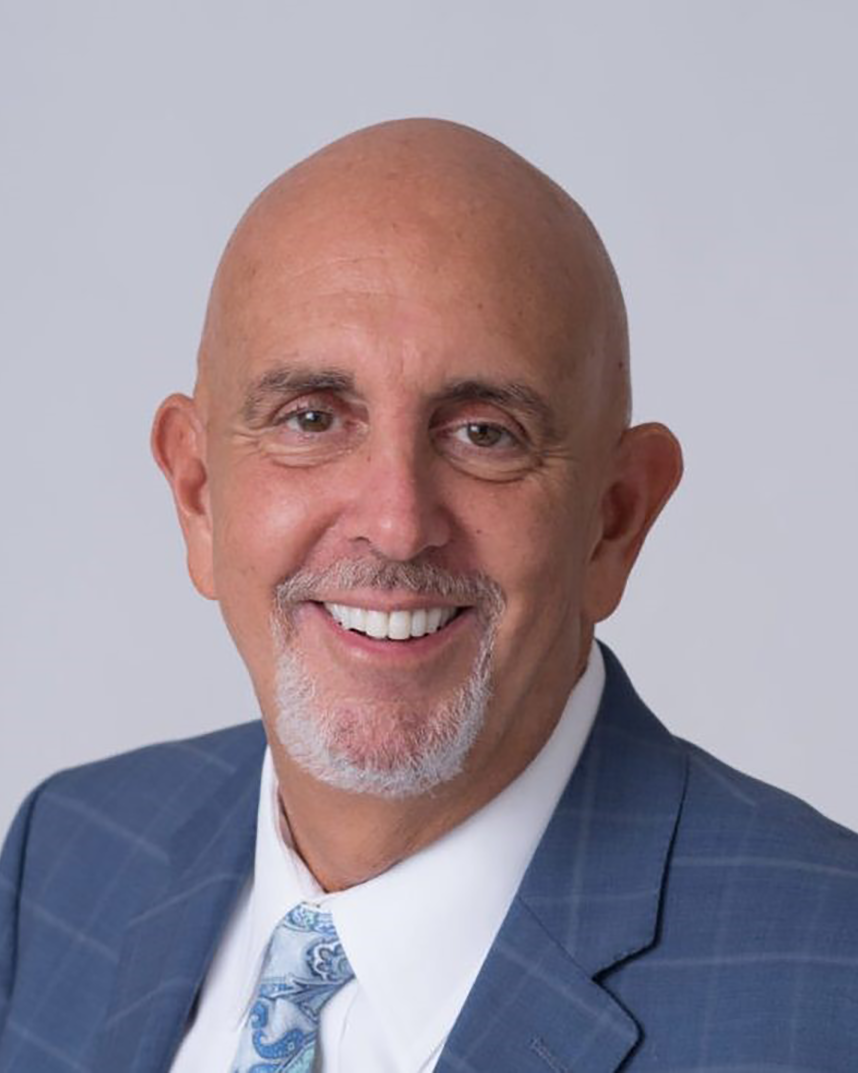
Stories of Lived Experiences
Jay enjoyed a 25-year career in local government, working in leadership positions in several cities across North Carolina including Durham and Fayetteville. Most recently, he was the Assistant City Manager of Fayetteville, overseeing the Transit department, Development Services, Economic and Workforce Development and Human Relations.
About two and a half years ago, Jay started to notice his attention to detail at work was slipping. He was spending more time writing himself reminders of meetings and deadlines to keep projects on track. Jay sensed something was wrong and reached out to a Neurologist for an assessment.
A neuropsychological assessment indicated some “definite deficiencies.” Jay was then referred to a memory disorders clinic for further cognitive testing. Additional testing confirmed his diagnosis of mild cognitive impairment (MCI), which was later changed to younger-onset Alzheimer’s disease. Jay was officially diagnosed with younger-onset Alzheimer’s disease in March 2018 at age 57.
After much “soul-searching” Jay decided to use the disease as a platform to raise awareness, develop public policy and raise funds for Alzheimer’s research. He got involved with speaking engagements and advocacy work through his local Alzheimer’s Association chapter.
Jay was appointed to the Alzheimer’s Association’s National Board of Directors in Chicago, one of only two members of the 28 member board living with the disease. He was also selected to serve as a member of the Alzheimer’s Association 2019-2020 National Early-Stage Advisory Group.
Jay received both his Bachelor’s degree and Masters of Public Administration from NCCU. Jay and his wife Angela live in Raleigh, North Carolina with their daughter Elizabeth.


What is Dementia?
Naudia Moorley, Psy.D., is a Psychometry Coordinator at the Banner Sun Health Research Institute (BSHRI) in Sun City, Arizona.
Dr. Moorley completed a bachelor’s degree in psychology (minor in Health Sciences) at the University of Central Florida. She completed a master’s degree in General Psychology at the University of West Florida. She completed a doctorate degree in Clinical Psychology at Midwestern University in Glendale, Arizona. She completed her pre-doctoral internship training at the Crisis Recovery Unit through the Southwest Behavioral and Health Services Training Institute in Phoenix, Arizona.
Dr. Moorley completed her post-doctoral training at BSHRI which primarily consisted of completing outpatient neuropsychological evaluations with the geriatric population. Most of her clientele are referred by neurologists specializing in dementia and movement disorders. Thus, her primary role has entailed using neuropsychological evaluations to assess one’s cognitive strengths and weaknesses and assisting with the diagnosis of various neurodegenerative diseases. Additionally, her current role includes assisting with the training and supervision of pre-doctoral students and involvement in multiple clinical trials focused on potential treatment options for various forms of dementia.
She has worked with myriad populations within her ten plus years in the field of Psychology but has thoroughly enjoyed working with the geriatric population within the past four years. On a more personal note, she enjoys spending quality time with her family, exploring the outdoors and traveling.

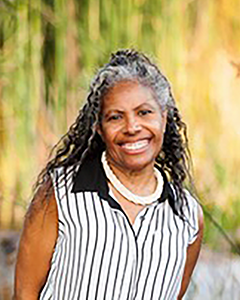
Moderator Ren’e Harrell is a native of Colorado. She attended and graduated from the University of Colorado at Colorado Springs as well as Mesa Community College in Arizona becoming a registered nurse. She then became a Telemetry Registered Nurse and served in that compassionate capacity for a variety of employers until she retired. She lives with her husband in Arizona. She is a member of First Institutional Baptist Church (FIBC) of Phoenix, AZ where she serves as the Chaplain for the Deacons Ministry.
Ren’e was drawn to moderate the session “What Is Dementia?” series having first hand knowledge of the toll this disease can take on individuals and families through her mother’s subsequent diagnosis and progression. She hopes to be helpful to others in some small way to meet the challenges of Dementia/Alzheimer’s caregiving.
